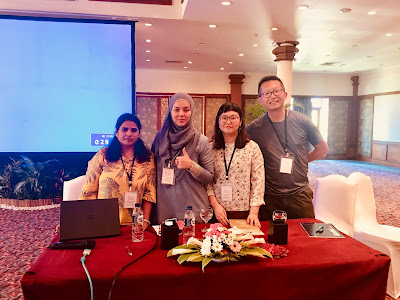#WhatWENeed in Nepal
Full CRPD Compliance on the inclusion of persons with
psychosocial disabilities
1. Our full and effective
inclusion in national laws and policies.
Nepal has a new disability
legislation for people with disability: Disability Right Act 2017. A focal person for persons with disabilities
exists now in Nepal at all levels, from local to central. There is a disability card system and
government provides basic social security. Current new law is not CRPD compliant.
The positive aspects of the law
include, seat reservation for persons with disabilities in the constitution of
Nepal Government; social security; free education; and access to justice.
2. Our right to live
independently and be included in communities.
Mental health is not fully
integrated into Development services, or disability inclusion.
There is one government hospital.
It has an open door policy and is not
considered by our movement as a 'mental asylum'. Because, luckily, there is no mental health
law. Nepal was never colonized by any
country, so we don't have pre-human rights laws. The Hospital has 50 beds. There are also
some private hospitals. There is no practice of consent. Degrading
inhuman treatment exists. It is
widespread news that families drop relatives who are in distress or
disturbance, across the border, in India.
People are also incarcerated in Indian asylums. High stigma exists. There is misconception
and discrimination for any kind of disability, not just psychosocial disability.
3. Full CRPD Compliance in disability legislation.
Current legal frameworks for
persons with psychosocial disabilities is not in compliance with CRPD. It
focuses on institutionalization and the medical model. In the Disability legislation, there is no
mention of full legal capacity. The law provides for institutionalization.
There is no provision for living independently or for community living. The law
does not prohibit substituted decision making.
Luckily, because Nepal does not have any legal history of from
colonialism, there is no Guardianship law.
4. Public
financing for Inclusion:
Nepal government has allocated a tiny budget for persons
with psychosocial disability. There is not enough budget to deal with the
current situation of persons with psychosocial disability, especially extensive
community living programs needed and social care. There are no programs for
easing the lives of persons with psychosocial disabilities within Development.
5. Community Empowerment for
care sharing:
Nepal has
support systems and social systems in general; and also, for persons with
psychosocial disabilities. But it is never enough. Despite the stigma and
violence which continues it is still an important part of community. Support systems include,
·
Family: Family is a key support system of person with
psychosocial disability. Nepali society has great value for the family. Most of
the families are intergrated. Member of
family do stand for person with psychosocial disability. But they need
empowerment.
·
Relatives: Relatives are also important
support system of person with psychosocial disability in nepali society. It has
great sense of belongingness to each other.
·
Neighbours: Neighbours are also a part of community, who do
support person with psychosocial disabilities.
·
Peers: Through peers, social support
groups, self help and other development linked groups, an individual can
empower themselves and overcome the problems. It also exists in Nepali society.
6.
To continue traditional healing practices that are CRPD compliant and serving
communities:
Nepal is full of alternative methods for healing of
psychosocial problems, since many years peoples practice these methods of
traditional healing process.
Yoga : It is kind of traditional healing method for
person with psychosocial disability. It is as old as human civilization. It
helps to balance the mental process and body exercise.
Meditation: It is also another healing method for
person with psychosocial disability. It helps the mind concentrate. It helps to
find ourselves and gives energy to fight the problems.
Mantra: It is big practics in Nepal. Most of the
people believe in this kind of healing method. Traditional healer chant the mantra
and It relieves problem of psychosocial disability.
Other than this, Nepal also has influences from other
countries nearby, including India, China, Tibet, etc. in terms of Tibetan
healing, Himalayan herbal healing, and other Asian healing traditions.
We have good linkage with the cross disability
movement. WGDR is doing advocacy in
local level and also doing awareness raising program for persons with
psychosocial disabilities. However, huge
gaps remain, in awareness, advocacy, and to build our community with a common
voice.
(Prepared for TCI Asia Pacific, Bali Plenary August 2018)
Women's Group For Disability Rights, Nepal
KOSHISH,
Nepal
Susmeera Aryal (extreme left)


Comments
Post a Comment